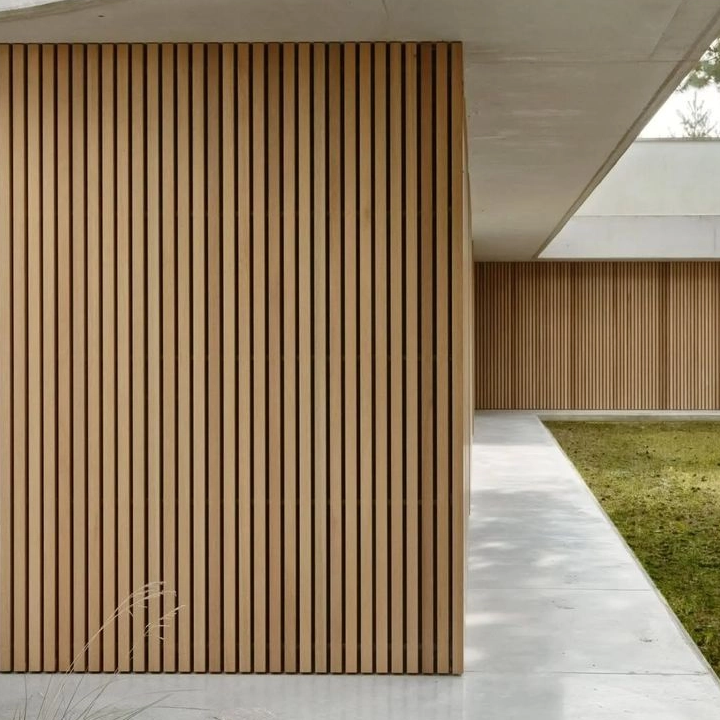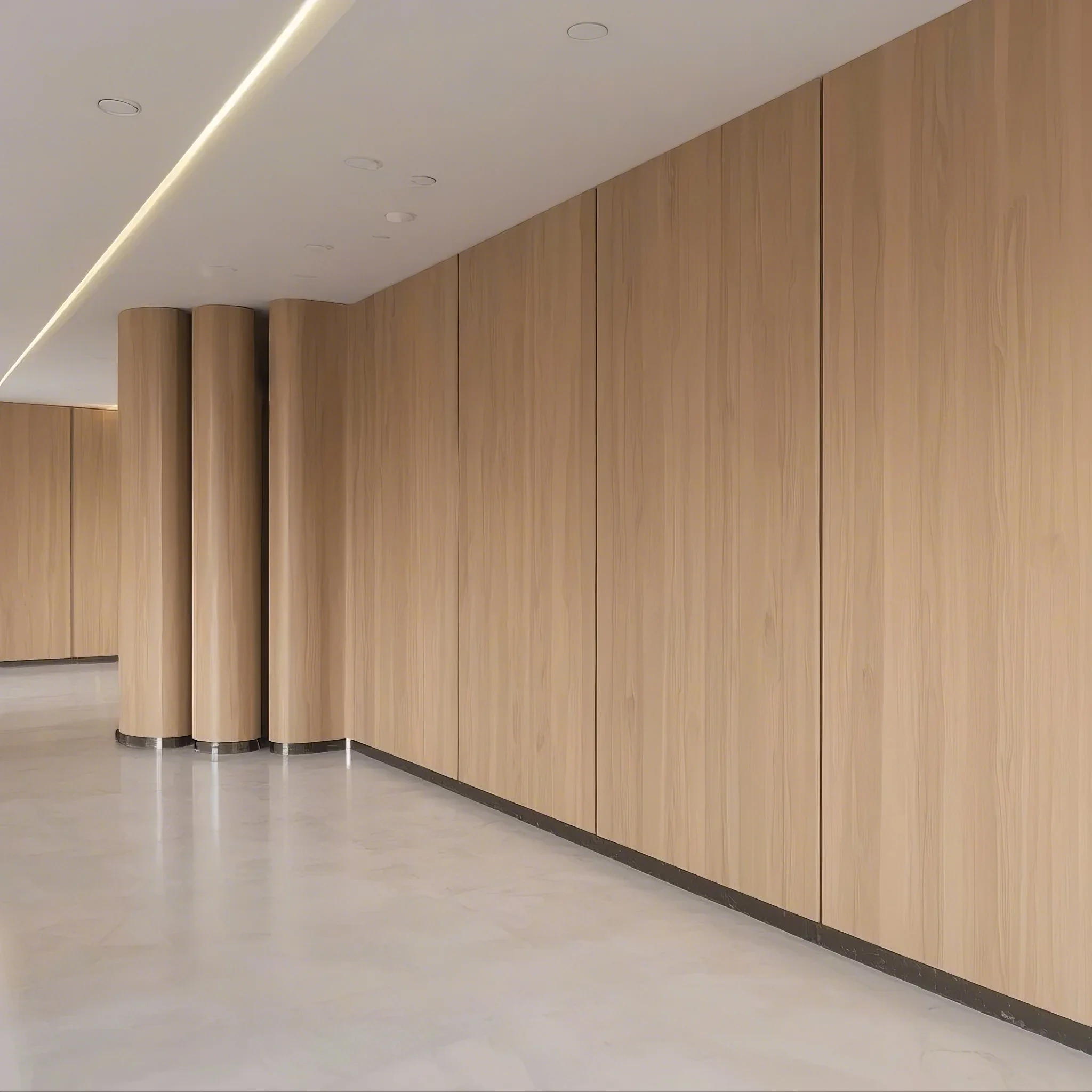- All
- Product Name
- Product Keyword
- Product Model
- Product Summary
- Product Description
- Multi Field Search



WPC wall panels have become increasingly popular in both residential and commercial construction. Their combination of durability, sustainability, and aesthetic appeal makes them a top choice for many homeowners, contractors, and designers. These panels are made from wood fibers and thermoplastics, creating a versatile material that can be used in various interior and exterior applications. If you are looking for an option that combines modern looks with long-lasting performance, WPC wall panels are worth considering.
In this article, we will explore everything you need to know about WPC wall panels, including what they are, how they are made, their benefits, applications, and factors to consider when choosing the right panels for your project.
A WPC wall panel is a building material made from a composite mixture of wood fibers and thermoplastic components such as PVC or polyethylene plastic. This blend creates a material that captures the natural aesthetics of wood but with enhanced durability and resistance to common issues like rotting, termites, and weathering.
Unlike traditional materials like wood and pure PVC, WPC panels offer the best of both worlds: the strength and beauty of wood, combined with the practicality and resilience of plastic. This makes them ideal for various applications, from decorative wall cladding to functional partitions in both interior and exterior spaces.
WPC wall panels typically consist of the following components:
Wood fibers: These provide the natural look and texture of wood. They are often sourced from recycled materials, making the panels eco-friendly.
Thermoplastic materials (PVC, HDPE): These provide durability, water resistance, and strength, allowing the panels to withstand harsh weather conditions without degrading.
Recycled plastic: Some manufacturers use recycled plastics like HDPE (High-Density Polyethylene) for improved performance. HDPE has better moisture resistance compared to PVC, making it ideal for use in areas exposed to high moisture levels.
The manufacturing of WPC panels involves an advanced extrusion and molding process. During this process, the raw materials (wood fibers and plastics) are mixed and heated until they form a malleable composite. This mixture is then extruded into molds that form the panels. The technology ensures that the panels are consistent in quality and performance, while also offering a variety of surface textures and finishes. The use of cutting-edge technology ensures the panels are highly durable, easy to maintain, and meet rigorous quality standards.
WPC wall panels are environmentally friendly because they are made from recycled materials. The use of recycled wood fibers and plastics helps reduce the carbon footprint of the production process and contributes to waste reduction. The panels themselves are also 100% recyclable at the end of their life cycle, making them a sustainable choice for environmentally-conscious consumers.

One of the primary advantages of WPC wall panels is their low-maintenance nature. Unlike traditional wood, which requires regular staining, sealing, and treatment to prevent rot and insect infestation, WPC panels are naturally resistant to these issues. They do not warp, crack, or split like wood and are not prone to pest damage. Additionally, WPC panels are resistant to dirt buildup, and a simple cleaning with soap and water is all that's required to keep them looking new.
WPC wall panels are highly durable due to their composite nature. They are resistant to blunt force, dents, scratches, and other forms of damage. The strength of the plastic combined with the texture and resilience of wood fibers makes these panels far superior to traditional wall materials.
WPC panels can withstand a wide range of conditions, from extreme temperatures to heavy foot traffic, making them ideal for both interior and exterior use.
Moisture resistance is another standout feature of WPC wall panels. Wood can absorb moisture over time, leading to expansion, warping, and eventual decay. In contrast, WPC panels are resistant to water and moisture, making them perfect for use in bathrooms, kitchens, and other high-humidity environments. Their ability to resist moisture also makes them an excellent choice for exterior cladding, particularly in areas prone to heavy rainfall or snowfall.
WPC panels are available in a wide variety of finishes, textures, and colors, allowing homeowners and designers to create the desired aesthetic. Whether you're looking for a sleek modern look or a more traditional wood finish, WPC panels can replicate the appearance of natural wood without the drawbacks. They can even feature 3D designs for a more striking visual impact.
The material also offers customization options, allowing you to select finishes that match your existing home décor or personal style. These design options make WPC panels ideal for creating unique interior and exterior spaces.
Because WPC panels are made from recycled materials like wood fibers and plastics, they are a much more sustainable option than many other types of wall materials. Their production helps reduce waste and minimizes the demand for new raw materials. Additionally, WPC panels are 100% recyclable, making them a responsible choice for environmentally-conscious projects. Their use in green building practices can help meet sustainability standards and contribute to LEED certification.
WPC wall panels are incredibly versatile and can be used in a variety of applications, both indoors and outdoors.
WPC panels are an excellent choice for decorating interior walls. They add texture, depth, and warmth to any room while maintaining a modern, stylish look. Whether you’re renovating a living room, hallway, or bedroom, WPC panels provide a sleek, sophisticated finish that enhances the overall ambiance. Their moisture-resistant properties also make them suitable for bathrooms and kitchens, where traditional wood might struggle to survive.
Given their resistance to weathering, WPC panels are a great option for exterior cladding. These panels provide a durable barrier against dirt, rain, and snow while also offering aesthetic appeal. Whether you're building a new home or updating the exterior of an existing one, WPC panels can improve the look of your property while protecting it from the elements.
Bathrooms are high-moisture areas where traditional wood or MDF panels may not perform well. WPC panels are an ideal solution for bathrooms due to their water-resistant properties. They provide a stylish, modern look while maintaining functionality and durability in environments with high humidity.
WPC panels also work well in kitchens. Their moisture, heat, and stain-resistant properties make them ideal for use around sinks, backsplashes, or even cabinetry. In addition, WPC panels are easy to clean, which is a crucial factor in kitchen spaces.
WPC wall panels are gaining popularity in commercial spaces, including offices, restaurants, and public buildings. These panels offer the flexibility of design, durability under heavy foot traffic, and a modern, professional appearance. They are an excellent choice for businesses looking to create attractive, functional spaces that require minimal maintenance.
WPC panels are well-suited for outdoor applications, such as facades, cladding, and decorative screens. Their ability to withstand harsh weather conditions, combined with their low-maintenance nature, makes them an ideal material for exterior walls. Whether used for residential homes or commercial properties, WPC panels add both aesthetic value and durability to the exterior of the building.
When selecting WPC panels, consider how the design will fit with the existing décor of your home or office. There are various textures and colors available, so choosing the right finish to match your architectural style is essential. Whether you prefer a rustic, vintage look or a more sleek, modern finish, WPC panels offer a range of possibilities.
Ensure the WPC panels you choose are suitable for the conditions they will be exposed to. Some panels are designed to withstand high foot traffic, extreme weather, and other challenging conditions. Evaluating the durability of the panels based on your location and their intended use is crucial to getting the best value for your money.
If you’re planning to install the panels yourself, consider how easy they are to work with. Some WPC panels are easier to install than others, so choose a kit with clear instructions and minimal complexity. However, for large-scale projects, hiring a professional may be a good idea to ensure proper installation.
While WPC wall panels are low maintenance, some attention is still required. Regular cleaning with soap and water will keep the panels looking fresh. It's also important to inspect the panels for any damage, such as scratches or dents, and address any issues promptly.

The upfront cost of WPC wall panels may be higher than traditional materials, but their long-term durability and low maintenance make them a cost-effective investment in the long run. Prices vary depending on the material composition, panel thickness, and finish.
Although the initial cost may be higher, WPC wall panels require little to no maintenance, saving homeowners and businesses money on repairs and replacements over time. Their longevity and resilience to the elements ensure that they remain in good condition for years.
Calculate the total cost of your project, including materials, labor (if needed), and any additional accessories like trim or finishing. Use a WPC calculator to estimate your total cost based on your desired panel size and design.
WPC wall panels offer durability, sustainability, and aesthetic appeal, making them the future of wall cladding. With their low maintenance, resistance to weathering, and wide range of design options, WPC panels are an excellent choice for modern construction projects. Whether for residential or commercial use, these panels provide the perfect blend of functionality and style.
A: WPC wall panels can last up to 20 years with minimal maintenance, making them a long-lasting choice.
A: Yes, WPC panels are ideal for outdoor applications due to their moisture and weather resistance.
A: Yes, WPC wall panels are easy to install, with many kits designed for DIY projects.